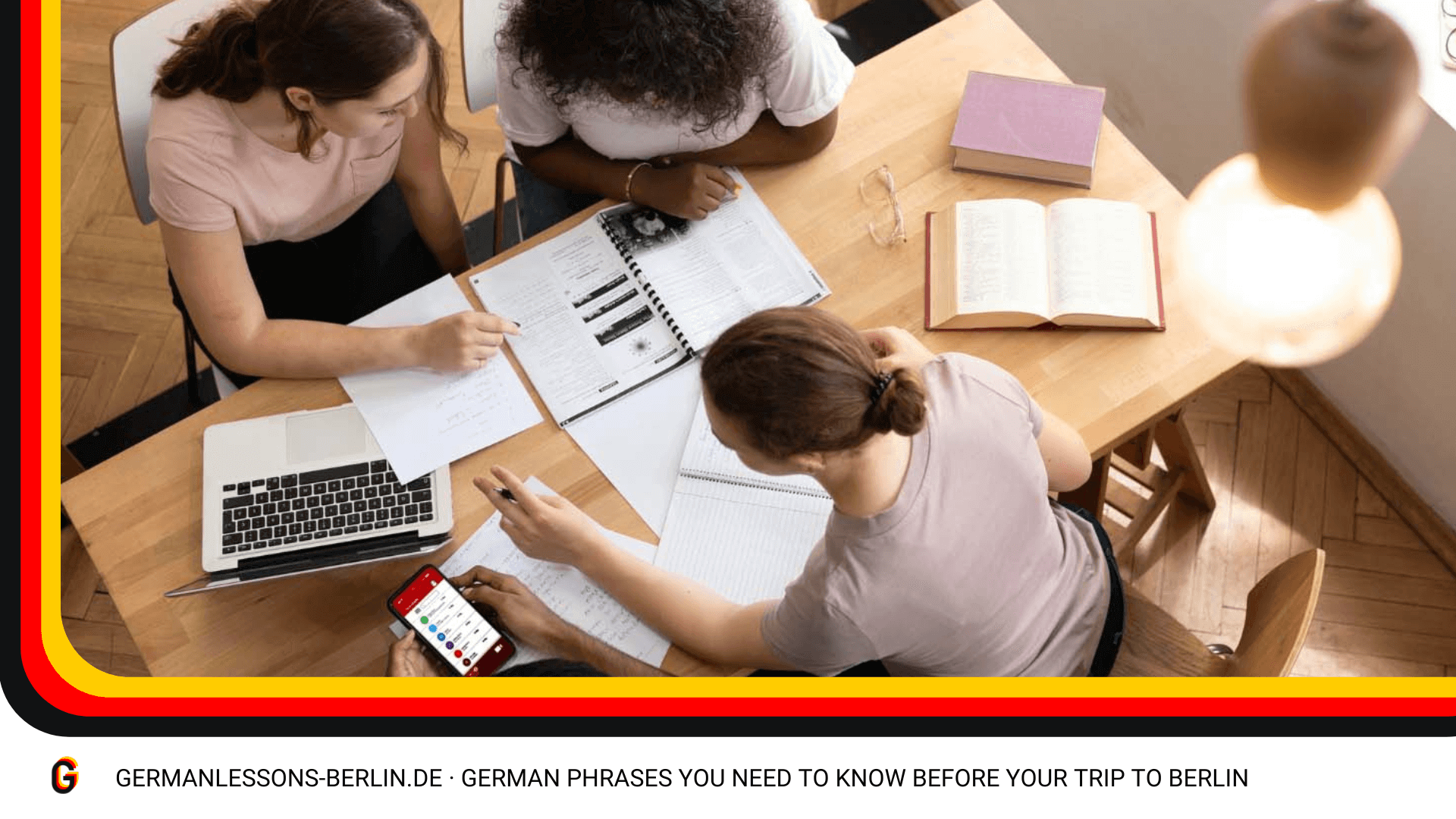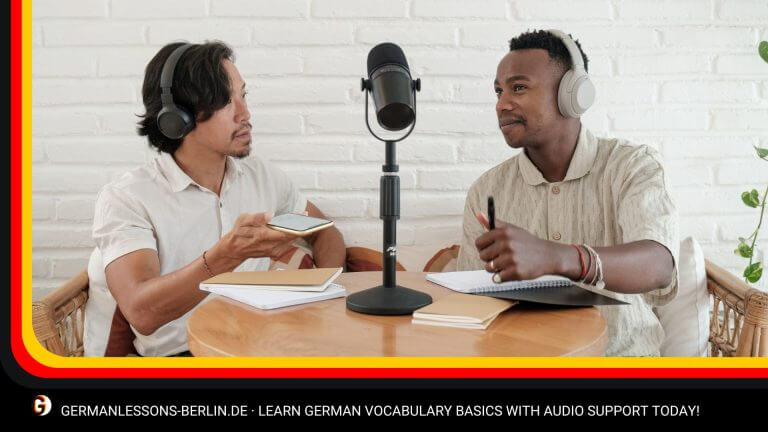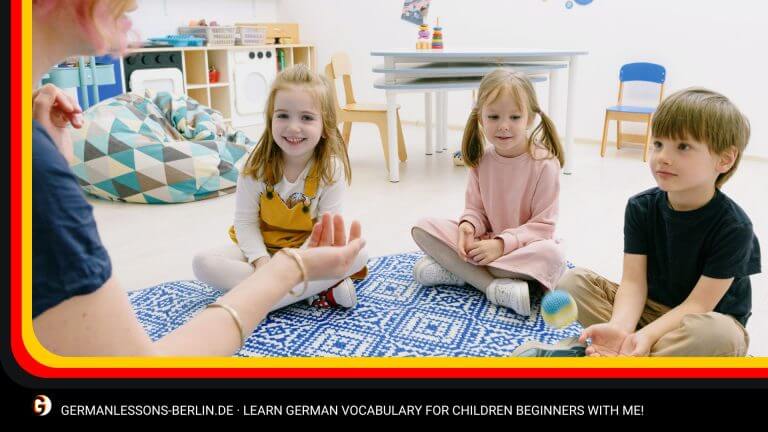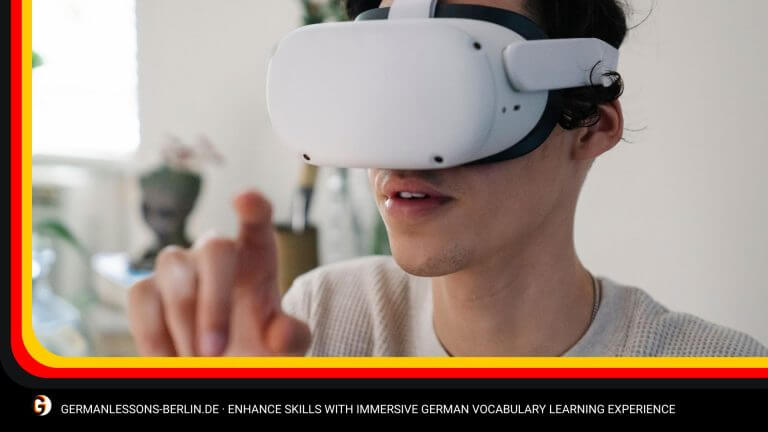Planning a trip to Berlin? Don’t let a language barrier hold you back! Our guide provides essential German phrases and tips for navigating the city like a local. From transportation to dining and beyond, this article has you covered. Start your journey towards fluency today!
Ready for a trip to Berlin? Don’t pack your bags just yet! Before you go, make sure you’re equipped with these essential German phrases to navigate the city like a local and truly immerse yourself in the culture.
Table of Contents
Introduction
Are you planning a trip to Berlin? Whether you’re a first-time traveler or a seasoned adventurer, it’s essential to learn some German phrases before your trip. Knowing even a few basic phrases can help you navigate the city, communicate with locals, and make your trip more enjoyable.
If you’re feeling overwhelmed by the prospect of learning a new language, don’t worry! You don’t need to be fluent in German to get by. In this article, we’ll guide you through the most important German phrases you need to know before your trip to Berlin.
First things first, why is it important to learn some German phrases? For one, it shows respect for the local culture and can make a positive impression on the people you interact with. Additionally, it can make your travel experience smoother and more enjoyable, as you’ll be better equipped to handle everyday situations, from ordering food to asking for directions.
So, what are some of the most important German phrases to learn? We’ll cover the basics, including greetings and introductions, asking for help, ordering food and drinks, and expressing gratitude and apologies. From there, we’ll move on to more specific topics, such as transportation, accommodation, food and dining, shopping, sightseeing and activities, emergencies, cultural tips, and technology.
But don’t worry, we won’t overwhelm you with a laundry list of phrases. Instead, we’ll focus on the most important and useful phrases for each topic, and provide examples and explanations to help you understand their proper usage.
By the end of this article, you’ll have a solid foundation of German phrases to use during your trip to Berlin. Not only will it make your travel experience more enjoyable, but it’ll also give you a sense of confidence and independence as you explore this fascinating city.
So, are you ready to dive in and start learning some German phrases? Let’s get started!
Basic Phrases
If you’re traveling to Berlin, it’s essential to know some basic German phrases to help you navigate everyday situations. In this chapter, we’ll cover the most important basic phrases to get you started.
Let’s start with greetings and introductions. In Germany, it’s common to greet people with a handshake and say “Guten Tag” or “Hallo” to begin a conversation. If you want to be more formal, you can say “Grüß Gott” or “Guten Morgen/Abend/Nacht,” depending on the time of day.
Another important aspect of German culture is politeness, which is why using “Bitte” and “Danke” (please and thank you) is crucial. You’ll find these words are often used in everyday conversations, whether you’re ordering food or asking for directions. Using “Bitte” and “Danke” can make a positive impression on the locals and help you show respect for their culture.
In addition to basic greetings and politeness, you’ll also want to know how to ask for help. If you need assistance, you can say “Entschuldigung” (excuse me) to get someone’s attention. From there, you can ask your question or make your request, such as “Können Sie mir bitte helfen?” (Can you please help me?) or “Wo ist die nächste U-Bahn-Station?” (Where is the nearest subway station?).
Of course, one of the most important aspects of travel is food, and you’ll want to know some basic phrases for ordering food and drinks. When you’re at a restaurant or café, you can say “Ich hätte gerne…” (I would like…) followed by the name of the dish or drink you want. Don’t forget to use “Bitte” and “Danke” when placing your order and receiving your food.
Finally, it’s also helpful to know some common phrases for daily use, such as “Wie geht’s?” (How are you?) and “Ich verstehe nicht” (I don’t understand). In addition, knowing how to express gratitude and apologies is important for showing respect and maintaining positive relationships with locals.
For example, if someone helps you with directions, you can say “Vielen Dank!” (Thank you very much!). And if you make a mistake, you can say “Es tut mir leid” (I’m sorry).
By mastering these basic German phrases, you’ll be well on your way to communicating with locals and making your trip to Berlin more enjoyable. Don’t be afraid to practice these phrases with the locals, and remember, a little effort can go a long way in building positive relationships and enjoying your travels to the fullest.
Transportation
Transportation is a vital part of any trip, and Berlin has an excellent public transportation system. In this chapter, we’ll cover some essential German phrases to help you navigate public transportation, as well as some tips for taking taxis and renting a car.
Let’s start with public transportation. Berlin has a comprehensive network of buses, trains, and trams, and it’s essential to know some basic phrases to get around. If you’re taking a train or a tram, you can say “Eine Fahrkarte nach…” (A ticket to…) followed by the name of your destination. If you’re taking a bus, you can say “Ich möchte eine Tageskarte, bitte” (I would like a day pass, please).
When you’re on public transportation, it’s also important to know some phrases for asking for help. For example, you can say “Entschuldigung, wo ist der Ausgang?” (Excuse me, where is the exit?) or “Können Sie mir sagen, wo ich aussteigen muss?” (Can you tell me where I need to get off?).
If you prefer to take a taxi, you can simply say “Ich möchte zum…” (I would like to go to…) followed by your destination. Don’t forget to use “Bitte” and “Danke” when making your request and paying the fare.
Finally, if you want to rent a car, it’s essential to know some key phrases to help you navigate the process. You can say “Ich möchte ein Auto mieten” (I would like to rent a car) or “Können Sie mir sagen, wie viel das kostet?” (Can you tell me how much that costs?).
When you’re on the road, it’s important to know some common traffic signs and rules, such as “rechts abbiegen” (turn right) and “links abbiegen” (turn left). It’s also essential to know some phrases for asking for directions, such as “Wo ist die nächste Tankstelle?” (Where is the nearest gas station?) or “Wie komme ich zur Autobahn?” (How do I get to the highway?).
By mastering these German phrases, you’ll be better equipped to navigate public transportation, take taxis, and rent a car in Berlin. Whether you’re exploring the city or venturing out to the countryside, these phrases will help you get where you need to go and make your trip to Berlin more enjoyable.
Accommodation
Finding the right accommodation can make or break your travel experience, and Berlin has many options to choose from. In this chapter, we’ll cover the most important German phrases for navigating the world of accommodation, from hotels to alternative options.
Let’s start with hotel vocabulary and phrases. When you’re booking a hotel, it’s important to know some essential phrases, such as “Ich möchte ein Zimmer für eine Person” (I would like a room for one person) or “Können Sie mir sagen, wie viel das Zimmer kostet?” (Can you tell me how much the room costs?).
Once you arrive at your hotel, you’ll need to check-in, which involves providing your identification and payment information. You can say “Ich habe eine Reservierung” (I have a reservation) or “Ich würde gerne ein Zimmer für eine Nacht buchen” (I would like to book a room for one night).
When it’s time to check out, you can say “Ich möchte auschecken, bitte” (I would like to check out, please) or “Können Sie mir eine Quittung geben?” (Can you give me a receipt?).
It’s also important to know the different types of accommodation available in Germany. Some popular options include “Hotels,” “Pensionen” (guesthouses), and “Ferienwohnungen” (holiday apartments). Each type of accommodation has its own set of amenities and costs, so it’s important to know what you’re looking for before you book.
If you’re looking for alternative accommodation options, Berlin has plenty of options to choose from, including “Hostels,” “Airbnb,” and “Couchsurfing.” When booking these options, it’s important to know some essential phrases, such as “Ich würde gerne eine Nacht bei Ihnen buchen” (I would like to book a night with you) or “Können Sie mir sagen, wie viel das kostet?” (Can you tell me how much it costs?).
By mastering these essential German phrases for accommodation, you’ll be better equipped to book the right place to stay during your trip to Berlin. Whether you prefer a luxury hotel or a budget-friendly hostel, these phrases will help you communicate with locals and make the most of your stay.
Food and Dining
One of the highlights of traveling to Germany is experiencing the country’s rich culinary culture. In this chapter, we’ll cover the most important German phrases for food and dining, from ordering food in restaurants to understanding menus and tipping.
Let’s start with German dining culture. In Germany, it’s common to share tables in restaurants, so don’t be surprised if you’re seated next to strangers. When you’re ready to order, you can say “Ich hätte gerne…” (I would like…) followed by the name of the dish or drink you want.
It’s also important to know some essential phrases for understanding menus. For example, “Vorspeise” means appetizer, “Hauptspeise” means main course, and “Nachspeise” means dessert. Additionally, many restaurants offer a “Tagesmenü” (daily special) or a “Suppe des Tages” (soup of the day).
When it comes to tipping in Germany, it’s customary to round up the bill to the nearest euro or leave a small amount of change. Unlike in other countries, tipping is not expected to be a significant portion of the total bill.
Of course, no discussion of German dining culture would be complete without mentioning beer. Germany is famous for its beer, and it’s essential to know some basic phrases for ordering and enjoying this national treasure. For example, “Ein Bier, bitte” (A beer, please) or “Ich hätte gerne ein Pils” (I would like a Pilsner).
By mastering these German phrases for food and dining, you’ll be better equipped to enjoy the country’s culinary culture and make the most of your trip to Berlin. Whether you’re savoring a traditional dish in a cozy restaurant or enjoying a refreshing beer in a beer garden, these phrases will help you communicate with locals and experience Germany’s rich culinary heritage.
Shopping
Shopping is a favorite activity for many travelers, and Berlin has no shortage of markets, shopping centers, and unique boutiques. In this chapter, we’ll cover the most important German phrases for shopping, from useful phrases to understanding currency and popular souvenirs.
Let’s start with useful shopping phrases. When you’re shopping, you can say “Ich suche…” (I’m looking for…) followed by the name of the item you’re searching for. If you’re not sure about the price, you can ask “Wie viel kostet das?” (How much does that cost?) or “Kann ich einen Rabatt bekommen?” (Can I get a discount?).
It’s also important to understand the currency and money exchange in Germany. The official currency is the euro, and it’s easy to exchange money at banks or exchange offices. When paying with cash, it’s customary to hand the money directly to the cashier, and they will give you change if necessary.
If you’re interested in visiting markets or shopping centers, Berlin has plenty of options to choose from. Some popular markets include “Mauerpark Flohmarkt” and “Boxhagener Platz Flohmarkt.” For shopping centers, “Mall of Berlin” and “Friedrichstraße” are great places to start.
Of course, no shopping trip would be complete without buying some souvenirs to take home. Berlin has many unique and interesting souvenirs to choose from, including “Ampelmann” products, “Berliner Luft” peppermint liqueur, and “Currywurst” sauce. When shopping for souvenirs, it’s important to know some essential phrases, such as “Ich suche ein Souvenir für meine Familie” (I’m looking for a souvenir for my family) or “Können Sie mir sagen, wo ich eine gute Auswahl an Souvenirs finden kann?” (Can you tell me where I can find a good selection of souvenirs?).
By mastering these German phrases for shopping, you’ll be better equipped to explore markets and shopping centers in Berlin and find the perfect souvenirs to take home. Whether you’re looking for a unique gift or just want to indulge in some retail therapy, these phrases will help you communicate with locals and make the most of your shopping experience.
Sightseeing
Berlin is a city with a rich cultural heritage and an abundance of museums, theaters, festivals, and street art scenes to explore. In this chapter, we’ll cover the most important German phrases for sightseeing, from asking for directions to visiting museums and attending festivals.
Let’s start with asking for directions. If you’re lost, you can ask for help by saying “Entschuldigung, können Sie mir bitte helfen?” (Excuse me, can you help me please?). If you’re looking for a specific location, you can ask “Wo ist die nächste U-Bahn-Station?” (Where is the nearest subway station?) or “Wie komme ich zum Brandenburger Tor?” (How do I get to the Brandenburg Gate?).
When visiting museums or theaters, it’s important to know some essential phrases, such as “Wie viel kostet der Eintritt?” (How much is the admission fee?) or “Wann ist die nächste Führung?” (When is the next tour?). You can also ask for recommendations by saying “Können Sie mir ein Museum / Theater empfehlen?” (Can you recommend a museum / theater?).
Attending festivals and events is a great way to experience Berlin’s cultural scene. Some popular events include the “Berlinale” film festival and the “Karneval der Kulturen” (Carnival of Cultures). When attending festivals, it’s important to know some essential phrases, such as “Wann ist das Festival?” (When is the festival?) or “Wo kann ich Tickets kaufen?” (Where can I buy tickets?).
Berlin is also famous for its vibrant street art scene. When exploring the city’s street art, you can say “Ich möchte die Street-Art-Szene erkunden” (I would like to explore the street art scene) or “Können Sie mir Orte empfehlen, an denen ich Street-Art finden kann?” (Can you recommend places where I can find street art?).
By mastering these essential German phrases for sightseeing, you’ll be better equipped to navigate Berlin’s rich cultural heritage and make the most of your trip. Whether you’re exploring museums, attending festivals, or admiring the city’s street art scene, these phrases will help you communicate with locals and fully immerse yourself in Berlin’s vibrant cultural scene.
Emergencies
No one wants to think about emergencies while traveling, but it’s important to be prepared for unexpected situations. In this chapter, we’ll cover the most important German phrases for emergencies, from vocabulary for emergency situations to contacting emergency services and understanding the German healthcare system.
Let’s start with vocabulary for emergency situations. Some important phrases to know include “Hilfe” (help), “Notfall” (emergency), and “Feuer” (fire). If you need to call for help, you can say “Ich brauche Hilfe” (I need help) or “Es gibt einen Notfall” (There is an emergency).
When contacting emergency services, it’s important to know the right number to call. In Germany, the emergency number is 112. When calling, be prepared to provide your location and a brief description of the situation.
If you need medical attention, it’s important to understand the German healthcare system. In Germany, medical care is provided by a combination of public and private healthcare providers. To receive medical care, you will need to provide proof of health insurance or pay out of pocket.
Some important phrases to know when seeking medical attention include “Ich brauche einen Arzt” (I need a doctor) or “Wo ist die nächste Apotheke?” (Where is the nearest pharmacy?). It’s also important to know some essential medical vocabulary, such as “Schmerzen” (pain), “Fieber” (fever), and “Verletzung” (injury).
By mastering these essential German phrases for emergencies, you’ll be better equipped to handle unexpected situations and ensure your safety while traveling. Whether you need to call for help, seek medical attention, or simply navigate a difficult situation, these phrases will help you communicate with locals and stay safe while in Berlin.
Cultural Tips
Traveling to a new country is an exciting experience, but it’s important to be aware of cultural differences and customs to avoid any cultural misunderstandings. In this chapter, we’ll cover some essential cultural tips for traveling to Berlin, including cultural differences, politeness and formality, and German gestures and customs.
First, it’s important to be aware of cultural differences. Germany has a rich cultural heritage, and some customs and traditions may be different from what you’re used to. For example, Germans are known for their punctuality and expect others to be on time as well. They also tend to be more direct and straightforward in their communication than some other cultures.
Politeness and formality are also important aspects of German culture. When meeting someone for the first time, it’s customary to use the formal “Sie” pronoun instead of the informal “du.” It’s also important to use polite phrases such as “bitte” (please) and “danke” (thank you) in daily interactions.
German gestures and customs can also differ from what you’re used to. For example, shaking hands is a common greeting in Germany, and it’s important to maintain eye contact while doing so. It’s also considered impolite to eat with your hands, even when eating fast food or street food.
By being aware of these cultural tips, you’ll be better equipped to navigate Berlin’s rich cultural heritage and avoid any cultural misunderstandings. Whether you’re interacting with locals, attending cultural events, or simply exploring the city, understanding these cultural tips will help you communicate more effectively and make the most of your trip to Berlin.
Technology
Technology is an essential part of modern travel, and knowing how to communicate about it in German can make your trip to Berlin more enjoyable and convenient. In this chapter, we’ll cover some useful German phrases for technology, as well as tips for accessing Wi-Fi and using your mobile phone in Berlin.
First, let’s look at some useful German phrases for technology. Some important phrases to know include “Internetzugang” (internet access), “Passwort” (password), and “Laden” (charging). If you’re having trouble with your device, you can say “Mein Handy funktioniert nicht” (My phone isn’t working) or “Ich brauche Hilfe mit meinem Computer” (I need help with my computer).
When it comes to accessing Wi-Fi in Berlin, most hotels, cafes, and restaurants offer free Wi-Fi to customers. However, you may need to ask for the password or log in to a network. Some useful phrases to know include “Wie lautet das Passwort für das WLAN?” (What is the password for the Wi-Fi?) and “Ich brauche Zugang zum WLAN” (I need access to the Wi-Fi).
If you plan on using your mobile phone in Berlin, it’s important to check with your provider to ensure that you have international roaming and that your phone will work in Germany. You may also want to consider purchasing a local SIM card for your phone. Some useful phrases to know include “Ich brauche eine deutsche SIM-Karte” (I need a German SIM card) and “Wie aktiviere ich die Roaming-Funktion?” (How do I activate the roaming function?).
By knowing these useful German phrases for technology, as well as tips for accessing Wi-Fi and using your mobile phone, you’ll be better equipped to navigate Berlin’s tech scene and stay connected while traveling. Whether you’re checking emails, uploading photos, or navigating the city with a map app, these phrases will help you communicate more effectively and make the most of your trip to Berlin.
Conclusion
Congratulations! You now have a solid understanding of the German phrases you need to know before your trip to Berlin. However, learning the basics is just the beginning of your journey. In this final chapter, we’ll discuss the importance of continuing to learn German, and provide additional resources for improving your language skills.
Learning German is an important step towards fully immersing yourself in German culture and experiencing the country in a more authentic way. By learning the language, you’ll be able to communicate more effectively with locals, read signs and menus with ease, and gain a deeper understanding of German history and culture.
Furthermore, learning a new language can be an incredibly rewarding experience. It can open up new opportunities for travel, work, and personal growth. By continuing to learn German, you’ll be able to build upon the foundation of phrases and vocabulary you’ve already learned and become more proficient in the language.
There are many resources available for those who wish to continue learning German. Online courses, language learning apps, and language exchange programs are all great options for improving your language skills. Additionally, practicing speaking and listening to German with native speakers is a great way to improve your fluency.
In conclusion, by learning the essential German phrases for your trip to Berlin and continuing to develop your language skills, you’ll be better equipped to communicate effectively and immerse yourself in German culture. Learning a new language is a rewarding and fulfilling experience, and we encourage you to continue your journey in learning German. With the resources available, you can improve your language skills and gain a deeper understanding of this fascinating country and its people.








